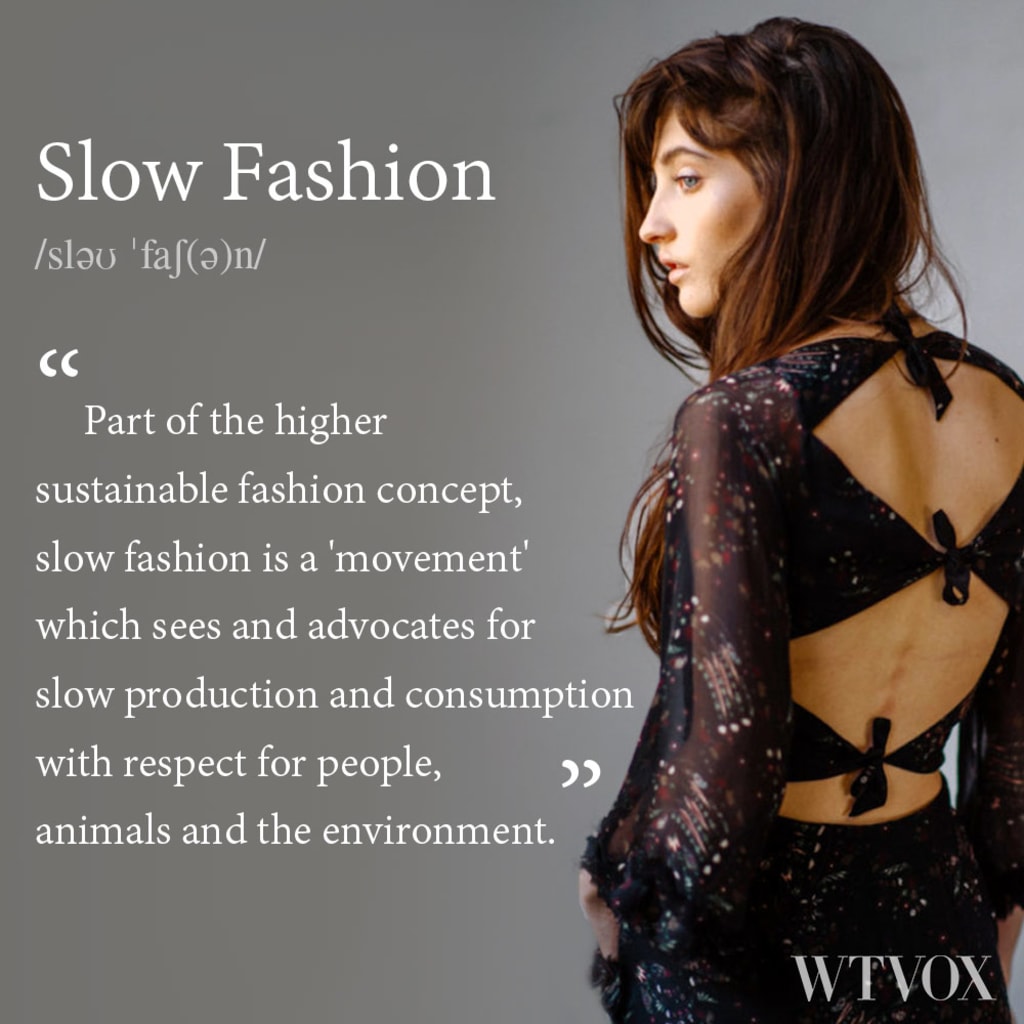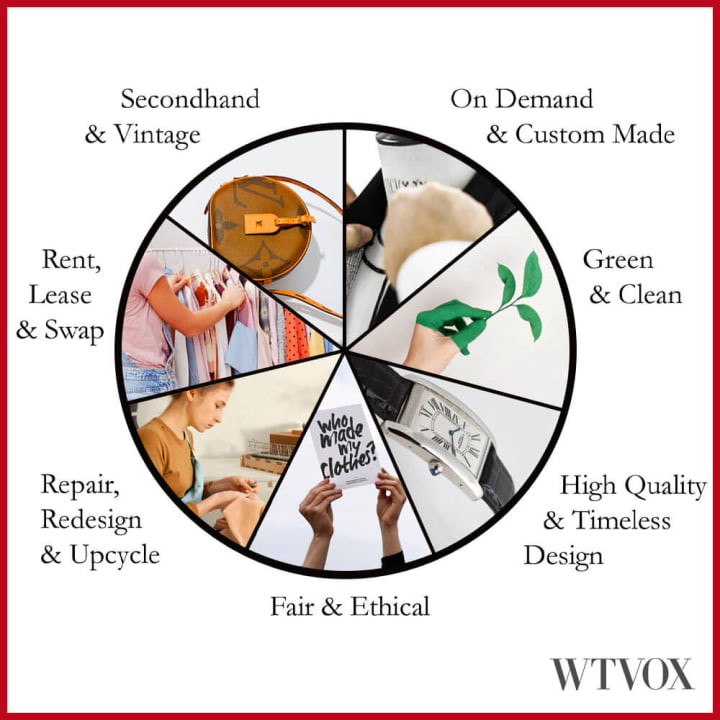What Is Slow Fashion?
Slow fashion definition

Slow fashion is a ‘global movement’ which advocates for slow-fashion production and consumption, with respect for people, animals and the environment.
Slow fashion is part of the higher concept of sustainable fashion.
Slow fashion opposes the fast fashion business model and industrial manufacturing – will detail on this below.
As a process, slow fashion relies on local craftsmen and eco-friendly materials.
The aim of slow fashion is to preserve local crafts and the environment while, in the process, it provides value to both producers and consumers.
Nevertheless, it is essential to recognise that new ideas and innovations are continually redefining and improving the concept and definition of SLOW FASHION.
Therefore, the slow fashion concept has an evolving nature with several definitions, dependent on the lens that tackles the subject.
Slow Fashion Origin
Inspired by the slow food movement, Fletcher observed a need to slow down the fashion industry as well.
“Slow fashion is about choice, information, cultural diversity, identity, as well as balance, durability and long-term quality products. Slow fashion is about designing, producing, consuming and living better."
Slow Fashion Movement
Slow fashion is made in small batches by sustainable designers or local artisans, from high-quality, (ideally) eco-friendly and cruelty-free materials.
Borrowing from the luxury business model, slow fashion manufacturing approach emphasises on product longevity and quality instead of quantity and mass-production.
As such, slow manufacturing:
- Supports (implicitly) local artisans and their crafts.
- Promotes fair wages.
- Fights climate change with lower carbon emissions.
- Protects the environment.
In slow fashion, the consumption stage can be broken down is several small stages or types:
- The purchase of vintage clothes.
- Redesigning/repurposing old clothes.
- Buying from smaller producers.
- Making your own apparel at home.
- Buying lesser but high-quality couture that lasts longer.
Slow Fashion vs Sustainable Fashion
Slow fashion and sustainable fashion are different concepts, and yet, closely related to each other.
The slow fashion movement is part of the higher goal of sustainable fashion, and thus, a cleaner, safer, happier world.
In its construct, sustainable fashion incorporates the whole range of ‘eco,’ ‘green,’ ‘slow,’ and ‘ethical’ movements of fashion.
This is known as 'The 7 Wheel Spokes of Sustainable Fashion'.

Since slow fashion doesn’t view products as disposable, it is sustainable in its nature.
Slow fashion also has an intrinsic ethical construct, by looking at the constituting parts of fashion and the links between them.
Slow fashion cares about raw materials, human labour, the environment, and the maintenance of these connections.
In this respect, slow fashion is seen as a ‘workable solution’ to the existing wasteful fashion ecosystem.
Finally, a slow fashion approach could initiate the creation of new strategies of design, production, consumption, use, and reuse of fashion.
Slow Fashion vs Fast Fashion
As the opposite side of slow fashion is fast fashion.
Fast fashion is a system built on cheap labour, resource depletion, waste creation, and mindless consumption.
The global fibre production reached an all-time high in 2018, at 107 million metric tons.
Around 80 billion new garments are produced, globally, each year.
80% of all garments produced end up either in incinerators or landfill sites.
Fast fashion model [manufacturing, returns, and waste] is one of the most significant global heating contributors, known to generate over 1.7 billion tonnes of CO2 each year.
However, slow fashion is also about creating garments that carry cultural and emotional connections, relevant to the places and people that made them.
Moreover, slow fashion advocates claim that consumers retain their garments for more than one season if they feel emotionally or culturally connected to them.
Indeed, research shows that slow fashion inspires consumers to buy fewer garments of higher quality, made by local artisans, from sustainable materials.
As such, slow fashion movement proposes a thoughtful, intentional, and holistic approach to fashion making.
Slow fashion has the potential of stopping unnecessary production and pollution of the fast fashion model.
It could put an end to wasteful supply chains and reckless consumption.
More Benefits of Slow Fashion
The adoption of slow fashion model could be of further benefit to the fashion industry by:
- Offering high-quality and timeless products, allowing customers to wear them for a lifetime.
- Slowing down mindless consumerism.
- Reducing pollution and textile waste clogging landfills.
- Having lower carbon emission and thus, protecting the environment.
- Supporting local artisans and their crafts, and thus giving them fair wages.
How To Support Slow Fashion?
Here are a few simple ways to get you involved as well:
- Take care of your clothes, wash only when necessary and on low impact washing. This way your garments will last longer.
- Start by repairing the garments you have. Sewing, replacing missing parts and buttons is quite simple.
- Engage in thoughtful purchases and think twice before buying.
- When possible, buy only from slow fashion brands. If unsure, see the slow fashion brands we’ve put together for you at the end of the article.
- Upcycle broken garments and make your own capsule wardrobe.
- Finally, recycle or donate the garments you no longer need.






Comments
There are no comments for this story
Be the first to respond and start the conversation.